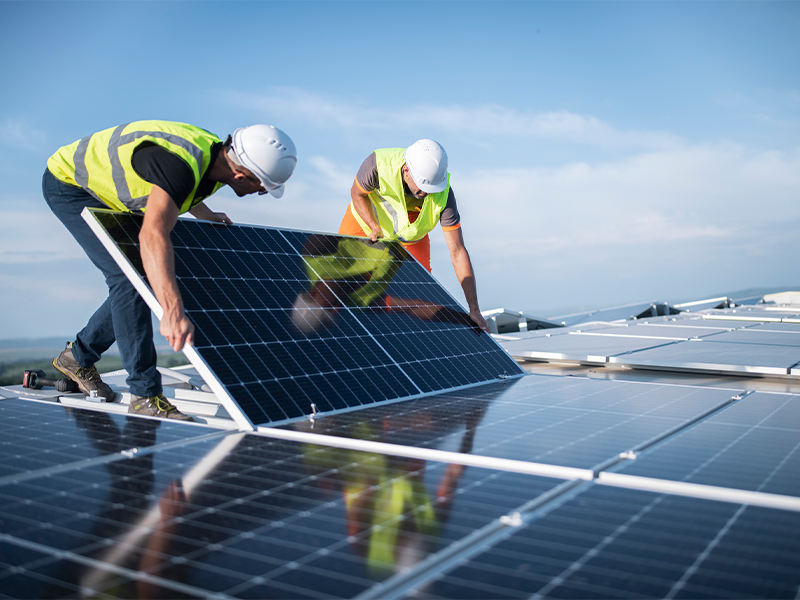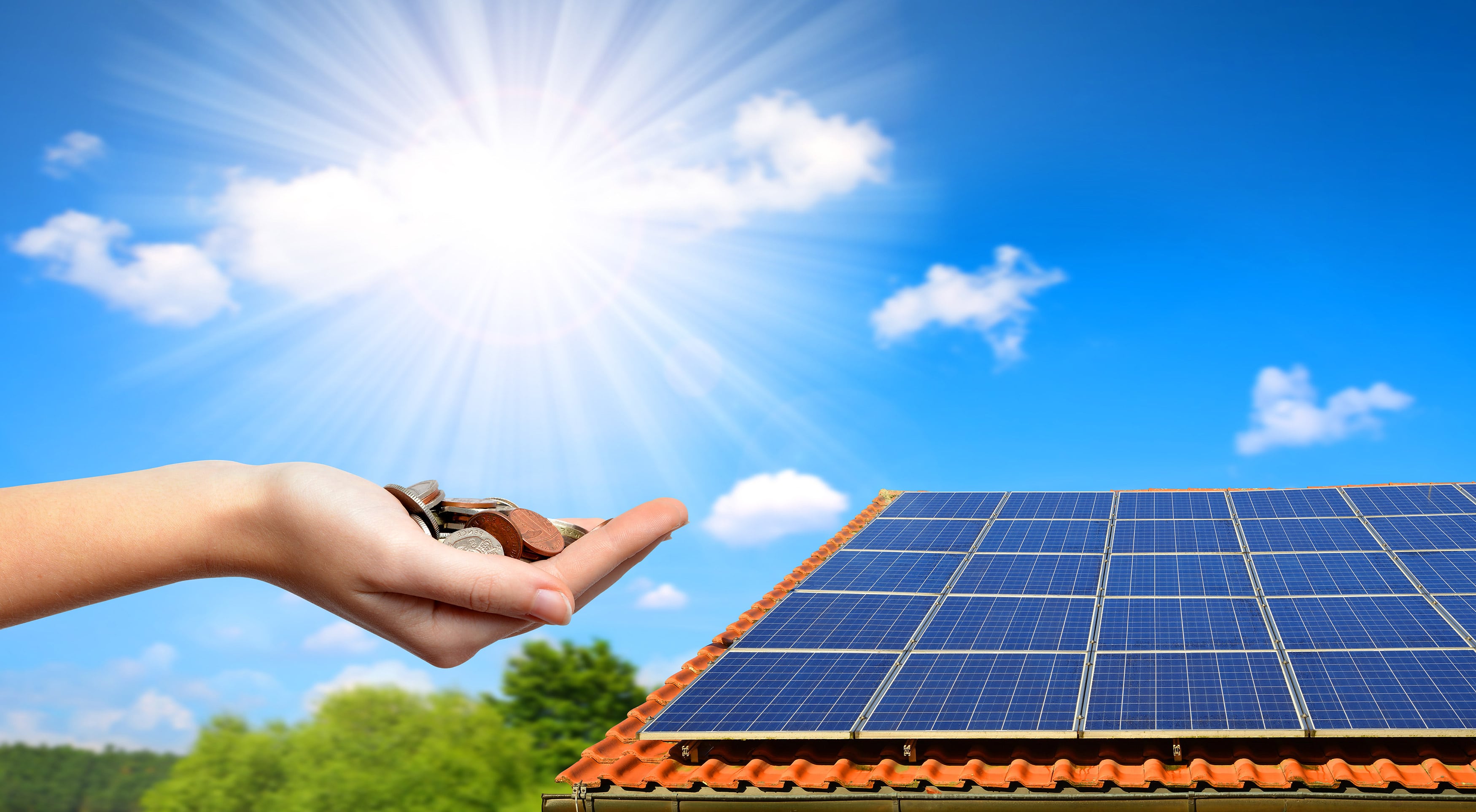Explore Budget-Friendly Solar Solutions with Simply Solar Illinois for Residences
Explore Budget-Friendly Solar Solutions with Simply Solar Illinois for Residences
Blog Article
How Solar Energy Can Help You Conserve Money and Minimize Your Carbon Impact
The combination of solar power into your energy portfolio provides an engaging possibility for both economic savings and ecological stewardship. By taking advantage of the sun's energy, homeowners can considerably lower their regular monthly energy costs while also securing against the changability of future energy costs. Furthermore, the shift to solar adds to a significant reduction in carbon discharges, straightening individual money with more comprehensive ecological objectives. As numerous federal government motivations come to be available, the concern occurs: how can one successfully navigate the initial financial investments and continuous benefits of solar modern technology to make the most of both financial and environmental gains?
Comprehending Solar Energy Financial Savings
While the shift to solar power commonly involves a preliminary financial investment, understanding solar energy savings is important for home owners and companies alike. Solar power systems can considerably reduce electrical energy costs by harnessing the sun's energy, equating right into significant long-term financial benefits. By generating their own electrical power, individuals decrease dependence on grid power, which is subject to fluctuating costs. These financial savings can build up gradually, usually bring about a rapid return on investment.
In addition, solar energy systems might certify for different economic rewards, including tax obligation credit histories and discounts, additionally improving their cost-effectiveness. The availability of internet metering permits individuals to market excess power back to the grid, producing an additional revenue stream. These variables add to the total cost savings connected with solar power.

In enhancement to direct monetary savings, solar power offers the added benefit of boosting residential or commercial property value. Homes geared up with solar panels are typically a lot more appealing to purchasers, as they guarantee lower energy costs - Simply Solar Illinois. Recognizing these elements is vital for anybody thinking about solar energy, as it highlights not just the potential economic gains, yet additionally the broader ecological and financial advantages of taking on renewable resource solutions
Preliminary Costs vs. Long-Term Perks
When reviewing solar energy, it is essential to evaluate the preliminary costs against the long-term advantages. The in advance investment for solar panels, installment, and relevant equipment can be substantial, often varying from $15,000 to $30,000, relying on the system size and home energy requirements. This initial expense may deter some home owners; nonetheless, it is crucial to consider the prospective cost savings in time.
As soon as mounted, solar power systems can considerably reduce or perhaps get rid of month-to-month electrical energy bills, causing substantial long-term economic benefits. Researches indicate that house owners can save anywhere from $10,000 to $30,000 over the life expectancy of their solar system, usually 25 years. In addition, numerous states supply incentives, tax credit scores, and refunds that can balance out first costs, making solar a lot more accessible.

Reducing Your Carbon Impact
Reducing your carbon footprint is Web Site a critical factor to consider in today's environmentally mindful society, and embracing solar energy is among one of the most effective methods to attain this objective. Solar energy is a clean, renewable energy that substantially diminishes reliance on nonrenewable fuel sources, which are major contributors to greenhouse gas emissions.

In addition, the extensive fostering of solar innovation motivates the development of green tasks and supports developments in power storage space and performance. The more people and companies purchase solar energy, the greater the collective decrease in carbon emissions, fostering a cleaner ambience for future generations.
Government Motivations and Discounts
Embracing solar energy not just profits the setting however can also lead to considerable economic cost savings, especially with the accessibility of federal government incentives and discounts. Different government, state, and neighborhood programs are designed to motivate homeowners and services to buy solar power systems, making the change much more economical.
Among one of the most famous motivations is the Federal Investment Tax Credit Scores (ITC), which permits solar system owners to my company deduct a significant percentage of the installation costs from their federal tax obligations. This motivation has actually been pivotal in decreasing the in advance costs linked with solar energy systems. Additionally, numerous states provide their own tax credit scores, grants, and discounts that can better enhance savings.
Furthermore, some local governments provide residential property tax obligation exceptions for solar setups, making sure that property owners do not deal with enhanced residential or commercial property taxes as a result of their renewable resource financial investments. Utility firms may likewise offer motivations, including net metering and feed-in tariffs, which allow solar power individuals to offer excess power back to the grid.
Choosing the Right Planetary System
Picking the proper solar system is important for making best use of power effectiveness and financial advantages. The decision rests on numerous aspects, including power requirements, budget, and readily available room. House owners need to start by assessing their electrical power intake to figure out the system size needed for optimal efficiency.
Following, take into consideration the different sorts of solar innovations available. Simply Solar Illinois. Solar (PV) panels are the most typical, converting check my reference sunshine straight right into electrical energy, while solar thermal systems concentrate on heating water. Each type has unique benefits depending upon specific requirements
Spending plan considerations are additionally paramount. Initial installment expenses can vary dramatically, so it is essential to contrast quotes from multiple companies and explore funding options. Government rewards and rebates can further decrease the financial problem, making planetary systems extra easily accessible.
Verdict
In summary, solar power presents a practical option for attaining substantial cost financial savings while simultaneously decreasing carbon exhausts. The preliminary financial investment, though substantial, returns considerable long-term financial advantages, with prospective financial savings varying from $10,000 to $30,000 over 25 years. The environmental advantages of solar energy contribute to sustainable methods critical for combating climate modification. Government rewards boost the expediency of solar innovation fostering, encouraging a shift towards a cleaner, a lot more economically reliable energy resource.
Report this page